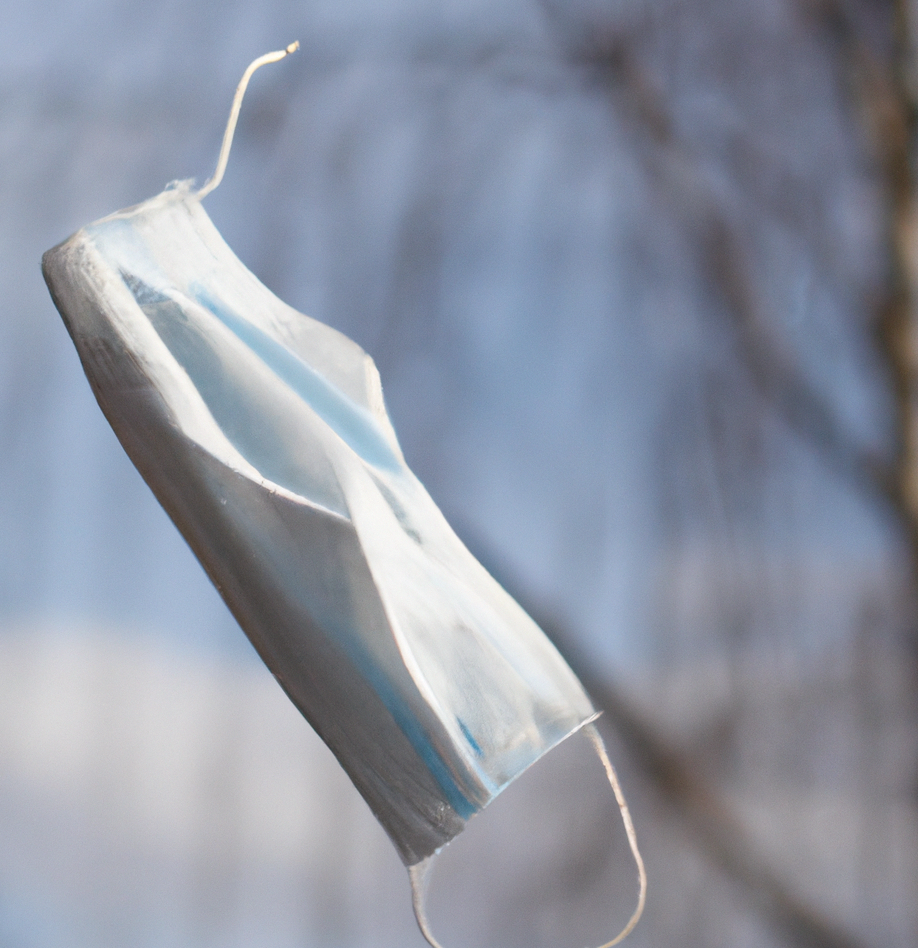An alliance of Canadian health professionals says masks may offer more risk than reward when it comes to stopping COVID-19.
This claim was made by the Canadian Covid Care Alliance (CCCA) in a recent online newsletter. The organization of independent Canadian doctors, scientists, and health care practitioners provides evidence-based information to the Canadian public about COVID-19.
Contrary to claims by Health Canada, the CCCA says masks have “negligible benefit and unknown but potentially harmful long term risks.”
The rationale behind requiring masks in public is that people without exhibiting symptoms of COVID-19 could still spreadSARS-CoV-2 virus in the air. An oft-cited study in May 2020 estimated that 30% to 50% of viral shedding and transmission occurred before symptoms appeared, but it was said that this claim was based on a faulty model.
Closer to reality, a COVID-19 editorial in the British Medical Journal in Dec. 2020 claimed that, “Searching for people who are asymptomatic yet infectious is like searching for needles that appear and reappear transiently in haystacks.”
Between March and July 2021, ten women and 26 men, aged 18 to 30 and unvaccinated for COVID-19, were recruited by the Imperial College for a study finally published in the Aug. 2023 issue of The Lancet Microbe. All were given an infectious dose of SARS-CoV-2 by intranasal drops, yet only 18 contracted the disease. Two people were responsible for 86% of the airborne viruses. Asymptomatic transmission was minimal. Only 7% of the airborne emissions occurred before the first reported symptom and only 2% were before a positive antigen test.
On May 3, Dr. Byram Bridle, associate professor of viral immunology at the University of Guelph, told an international COVID summit at the European Parliament that asymptomatic transmission occurred “very rarely” and was “absolutely not” a “key driver” of the pandemic.
Bridle said 48 academic papers warned of asymptomatic transmission, but each was “fatally flawed” for misusing the PCR test. He said only a few labs used the correct threshold of 24 cycles to ensure they were still dealing with infectious genetic material, not just particles.
As well, Bridle dissected a Korean study that concluded “isolation of asymptomatic patients may be necessary to control the spread…” He noted only one of the PCR-positive test results showed up at 24 cycles and it was for someone with symptoms. The conclusion, Bridle said, was not to isolate everyone, but that everyone sick should stay home.
Research from Stanford University bolsters this result. One of their studies found 96% of those who were PCR-positive but without symptoms were not infectious.
CCCA also directed readers to Dr. Margarite Griesz-Brisson, a consultant neurologist and neurophysiologist with a PhD in pharmacology.
“The rebreathing of our exhaled air will without a doubt create oxygen deficiency and a flooding of carbon dioxide. We know that the human brain is very sensitive to oxygen deprivation,” commented Griesz-Brisson.
“I do not wear a mask, I need my brain to think…and not be in a carbon dioxide-induced anaesthesia…. There is no unfounded medical exemption from face masks because oxygen deprivation is dangerous for every single brain.”
Young people need air the most and masks the least, she said.
“For children and adolescents, masks are an absolute no-no. Children and adolescents have an extremely active and adaptive immune system and they need a constant interaction with the microbiome of the earth,” she said.
“The youth’s brain is thirsting for oxygen. The more metabolically active the organ is, the more oxygen it requires. In children and adolescents every organ is metabolically active.”
Griesz-Brisson also issued a warning. “When in ten years, dementia is going to increase exponentially, and the younger generations couldn’t reach their God-given potential, it won’t help to say, ‘We didn’t need the masks.’”
CCCA also raised questions about the developmental impacts on infants who must look at masked faces. A systematic review published in 2022 in Frontiers in Psychiatry concluded,
“Since face masks affect the visible face configuration, it is possible that speed of detection and recognition of masked faces could be altered from 4 months of age.” Obviously, it is altered for the worse and not the better.
The paper Does equipoise exist for masking children for COVID-19?, set for publication in the Dec 2023 Public Health in Practice considered the evidence. Its conclusion? “[O]wing to lack of evidence of net benefit, recommending this intervention does not currently appear to be medically ethical.”
Finally, the CCCA asks, “What is your mask hiding?” Nanoplastic microfibers, carcinogenic titanium dioxide, volatile organic compounds, bacterial contaminants, lead, and other trace elements is the answer.
A Brownstone article by PhD immunologist Carla Peeters suggested the “fatigue, brian fog, breathlessness, anxiety, depression, and a loss of smell and taste,” the symptoms of long COVID, might be related to breathing in such substances.
More research is, of course, needed, but there’s enough evidence already for people to choose for themselves. If nothing else, policy makers should think twice before mandating the general public to wear masks as the COVID virus spreads again this fall.
Lee Harding is a research fellow for the Frontier Centre for Public Policy.



